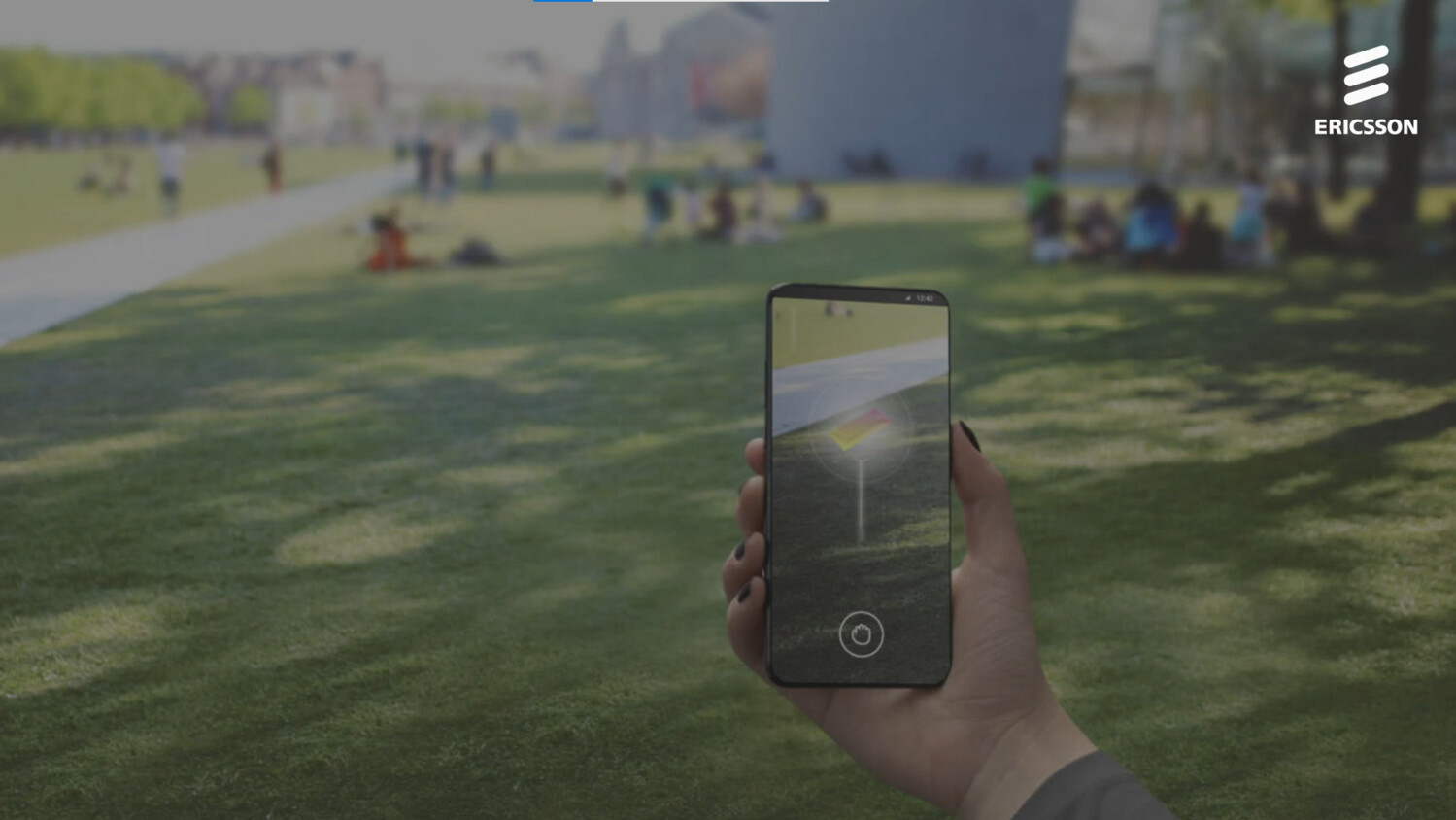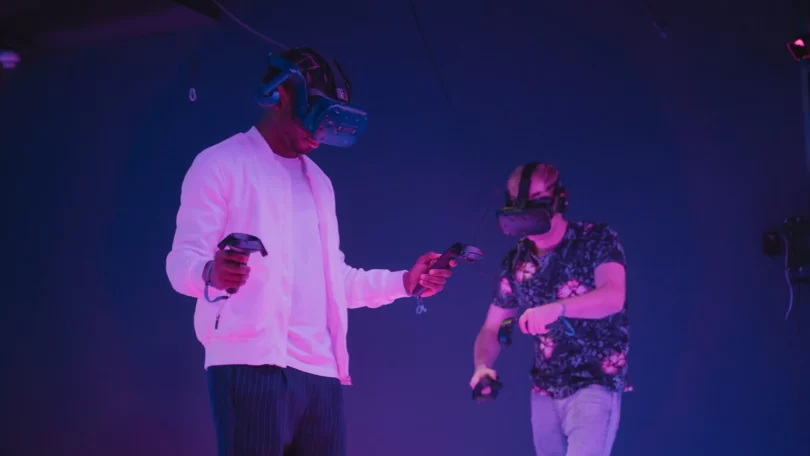[ad_1]
Dr. Pernilla Jonsson: Over the last few months, the media has been full of news about the metaverse and how it will revolutionize the way we communicate and engage with the mobile internet. But, to the world’s consumers, this has been long coming. A few years ago, Ericsson’s Consumer and Industry Lab revealed that half the world’s smartphone users expect us to be wearing AR glasses by 2025. Is this still a realistic expectation?
We’re also more ready than ever to embrace new immersive media formats. The pandemic has been an eye opener both in the possibilities and limitations of a screen based world. At Consumer & IndustryLab we can see a jump in demand for immersive services as a result. We miss the social interaction of the physical world – something that the metaverse would give us by replacing screen based online meetings with allowing holograms or avatars to meet much like in the physical world. How will the metaverse develop and how will it evolve for industries like entertainment?
Luckily, our expert panel who are leaders in this field are on hand to expand on these discussions. Joining us are:
Aaron Grosky, President & Chief Operating Officer, Dreamscape Immersive.
Jay Cary, Vice President, 5G EcoSystem, AT&T Mobility.
Anthony Batt, Co-Founder and EVP of Product and Development, Wevr.

Find out what happened when Ericsson teamed up with AT&T, Dreamscape Immersive, NVIDIA, Qualcomm, Wevr and Warner Bros to create the industry’s first 5G-enabled multi-user immersive location-based VR experience
Can you start by telling us what you think is so interesting with these recent metaverse developments?
Jay Cary: My role as VP of 5G EcoSystem and partnerships at AT&T really puts me at the front line of how the metaverse is being built. For me, the metaverse to me is a combination of not one, but a series of worlds. What’s really exciting about the metaverse is that instead of viewing the internet, you’re going to be able to participate in it. And instead of being sucked into your phone as you are today, the metaverse is going to free you from that phone and bring the online world around you to life. You could say it’s a blending of online gaming or VR and AR, and it’s a really exciting time to be working on things that are going to help bring this new reality to light.
Anthony Batt: I think we’re going to be providing millions of users around the world with a way to interact globally in a 3D space. I look at it from a creative place and it’s going to unlock a new way to develop games, develop content, and allow people to connected in a way that they’re not connected now. Right now, we largely engage online through video, messaging platforms, scrolling through web pages or playing video games, for example – most of which are in a 2D format. But as we enter the metaverse, we’ll have all of that, plus the ability to digitally immerse ourselves within the internet through VR or XR headsets. It will truly transform the way we tell stories, play games. And it will open up new opportunities to learn, play and communicate for millions of people.
Hear from our XR experts
Hear from our 5G Things Summit panel who dive into how the metaverse is evolving for the production and consumption of XR experiences.
Read more about the summit here

Aaron Grosky: I think the metaverse is the thing that will replace the internet entirely. It’s all about idea of the spatial web, of taking what is a 2D flat experience into one that’s 3D so it becomes an extension of what you do day in, day out. And I think the opportunities that this unlocks and creates for creators, educators and experience makers around the world is just incredible. It’s the equivalent of a technological, industrial revolution, and we’re thrilled to be welcoming it.
Gaming is such a mass market on the internet today and it has really become the entrance point to XR. How do you see this developing?
Jay Cary: We’ve seen gaming lead the way into the metaverse and the manifestation of what XR will become, which is the metaverse. And we see this coming first to the gaming world. I think what’s going to be interesting is how it starts to evolve and move outside of, either the small screen of the phone or the screen of a laptop and starts to immerse users on a deeper level.
Aaron Grosky: Gaming is all about experience engagement, and it’s constantly pushing the paradigm in terms of performance and how it brings you into it. If you think about it from an XR and metaverse level, think about how AR was first really appreciated through games like Pokémon Go. You use your phone, but it brings gaming into your physical environment. Taking that next step forward from AR to the metaverse will be fascinating. I watch my children spend too much time on Roblox and Fortnite, and they build and replicate their communities, expanding on them inside of these environments. And it’s completely native. It’s completely natural, their engagement is completely organic, and it is unlocked by the connectivity that this kind of shared platform allows.
Anthony Batt: Absolutely. If you take us adults, we’re already sort of in a hybrid world now, with video screens and online meetings. So you can imagine a more in depth version of that, where we have a headset on and we’re in an office environment; we could be interacting with our colleagues in real time while other people from a hybrid world are also appearing in our vision. And they’re interacting as well. That’s the world we’re moving to. And gaming as a technology and as a creative space is pushing that reality into the world right now.
If you watch kids using Roblox or Minecraft, they’re doing collaborative play or collaborative work – they’re crafting together, but they’re also talking, and that’s very valuable. I often think how this online collaboration is going to affect the corporate workspace in 10 years, 20 years. For me, we’re going to end up in a hybrid, three-dimensional world that we can be in all the time. And we won’t be thinking about limiting our screen time – we’ll be looking for opportunities to not be in it. For example, the creative exploration of creating a meditative, tranquil moment might be in the screen time. So it’s all going to change. I think that we’ll all adapt, we’ll all be OK and hopefully it’ll be super fun.

How will 5G impact the future of storytelling and the production process of immersive formats?
Anthony Batt: We’ve worked with both VR and XR on productions for about 36 months now. Most profoundly, it affected us when we were working with Warner Bros. on a VR Harry Potter project. We were doing a lot of motion capture, so our actress was wearing a suit and we were capturing her motion data.
She had a VR headset on, so she could act and perform to the actual characters in real time. This gave us an enormous amount of flexibility, but most importantly, it gave the actors the ability to be reactive to the scene being made. Normally, there’s a bit of a disconnect here. You’d film the motion capture data separately and you would instead use a puppet on stage. 5G enabled us to use lightweight headsets that were tetherless, so we can consider a bigger volume of data, which really affects production in a profound and positive way.
Aaron Grosky: For me, it’s the ability to create without limitation. Right now, when you’re building for real-time 3D environment, you have to consider all of the computational and graphical processing limitations that exist either on the resident device that you’re looking at, or the device that you’re tethered to. And by the way, in the metaverse, nobody wants to be tethered to anything. You need to feel that you’re able to navigate freely.
Without the 5G technology, we have to crush some aspects of performance because it relies on batteries in a backpack that you’re wearing as you walk around or because your cable is only three meters long. So 5G really unlocks the ability for people to appreciate, to consume a product that was created with the highest fidelity and the highest level of engagement and not be compromised at all by local performance challenges.
Pernilla Jonsson: If I can add something here – on a wider level, we’re obviously all waiting for that new device to make an everyday metaverse possible. However, this isn’t just about the device. The surrounding infrastructure of built out 5G networks with edge compute and the possibility to offload the device is another factor which will develop in the years to come. However, there is also the availability of metaverse apps and services and the availability of creators who understand how to make use of the format of the new technology. Just like the app economy was not built in a day neither will the metaverse. At the end of the day, it’s how end users find the format, and it needs to be both exciting and useful to relate to them. Often, it’s the technology that’s put on a pedestal, but without storytellers making experiences it so engaging, we only have half the product.
According to our research, half of the world’s consumers think we’ll all be wearing AR glasses by 2025. Do you think that estimation is accurate?
Jay Cary: I do believe that AR glasses are going to be a very interesting device for consuming content in the future. I do think that we’re probably in that kind of timeframe that, perhaps in ’23, we’ll see some devices that become really interesting. I think we’ll also see some of the big players in the device ecosystem really embrace glasses, which I think is what is needed to get the kind of traction we need for the ecosystem to start to develop.
Aaron Grosky: I think ’25 is about right relative to the availability of the product. But it can’t be clumsy. That’s the thing about adopting technology – it’s a transitional process and then it’s an absolute hockey stick in terms of adoption. So 2025 is going to show a lot of accessibility to hardware that people will be incredibly interested in, but what percentage of the population engages with it, I’m not yet sure.
The pandemic has really pushed us when it comes to new digital behaviors. In fact, three out of four consumers say that we’ll consume status objects in digital formats in the future and not so much in material ones. Would you agree?
Anthony Batt: We’re already seeing it, we’ve been experimenting in our labs, and we actually see that is going to be a future state – and it may start just at home and as we get more untethered. I also believe that super convenience is always a winner. Zoom and similar systems have made it very convenient to do these sorts of things. And I think as we move to XR being very convenient, it will just be the thing that you do, especially if it’s accessed easily through a headset in a way that’s not cumbersome or hot, which is what we’re fixing on the hardware side. I think the content will just flow into it.
Aaron Grosky: Occasionally, there comes a confluence of events that catalyze and accelerate normal life in ways that were already intended to happen. In this case, unfortunately, it was a pandemic. But the pandemic allowed people to understand what remote collaboration, remote interaction, what being geographically dislocated but virtually co-located really means. But it has limitations. I’ve watched my children be homeschooled, essentially resume school for a year, and I watched the glaze that comes over their eyes because of the lack of engagement. It’s a barrier that can be hard to cross after a few minutes of concentration.
But when you can step inside something immersive like the metaverse, you have agency, you have presence, and you have dimensionality. Suddenly, you can pick up on body language. You can pick up on a human connection, even in avatar-driven environments. This shift could be transformational not just for entertainment, but for education and enterprise.
Pandora’s Box has been opened; the genie is out. So let’s get creative. Let’s use these technologies with the most efficacious means possible, and welcome in the metaverse.
Want to know more?
Read more about Ericsson’s industry-first 5G XR proof-of-concept, developed together with AT&T, Dreamscape Immersive, NVIDIA, Qualcomm, Wevr and Warner Bros.
Welcome to a world of immersive experiences with XR
Here’s how you can experience new dimensions of entertainment
Understand how virtual and augmented realities could transform everyday reality
[ad_2]
Source link








